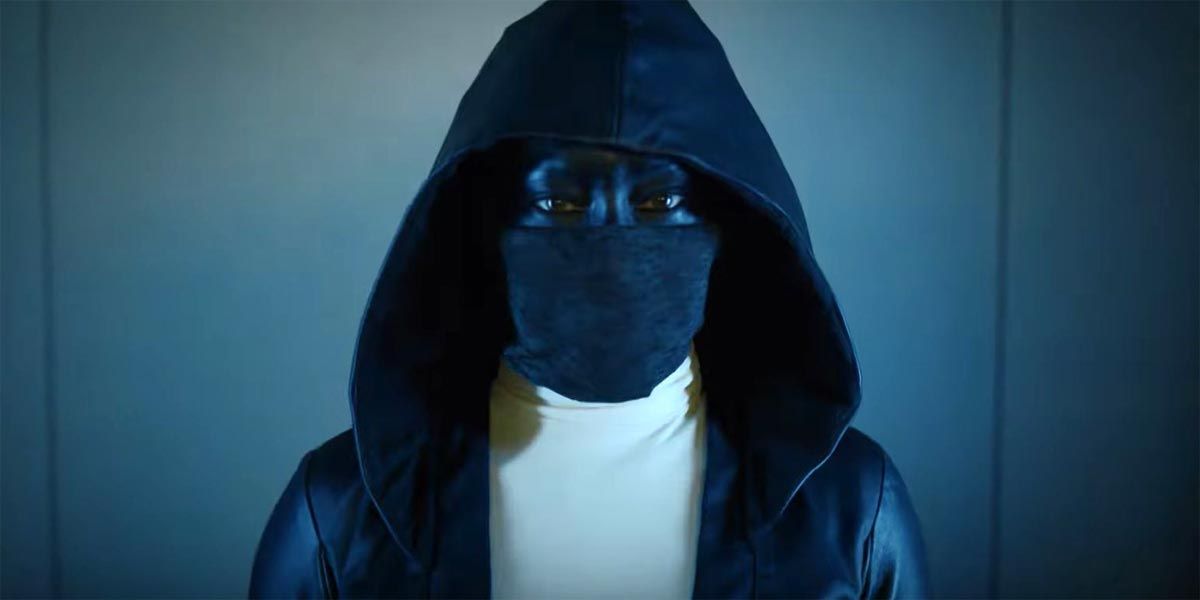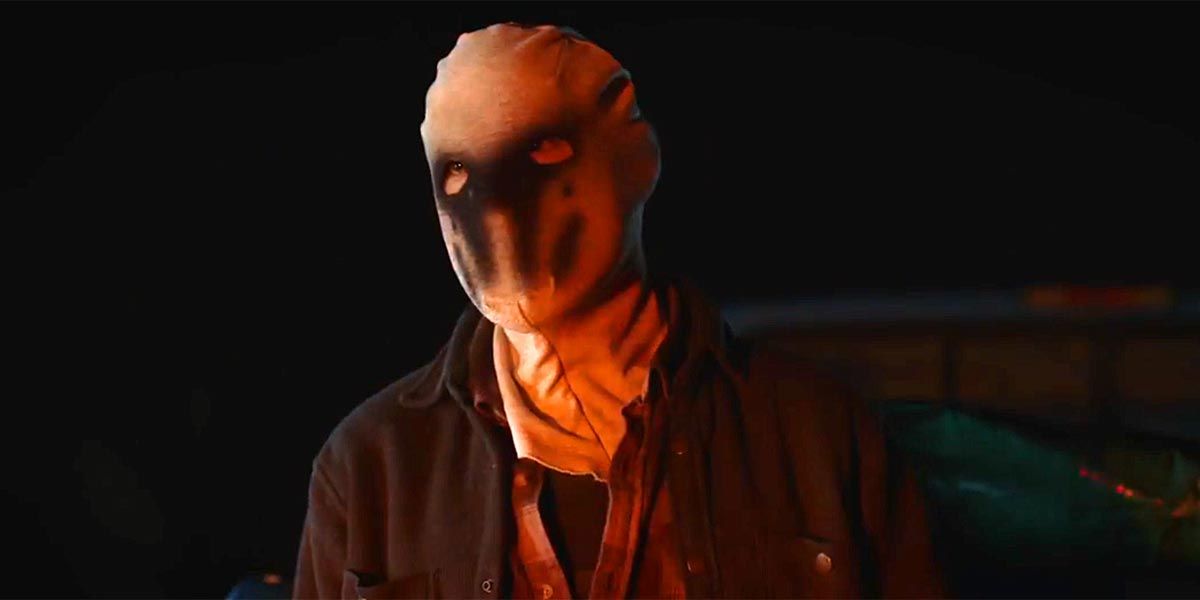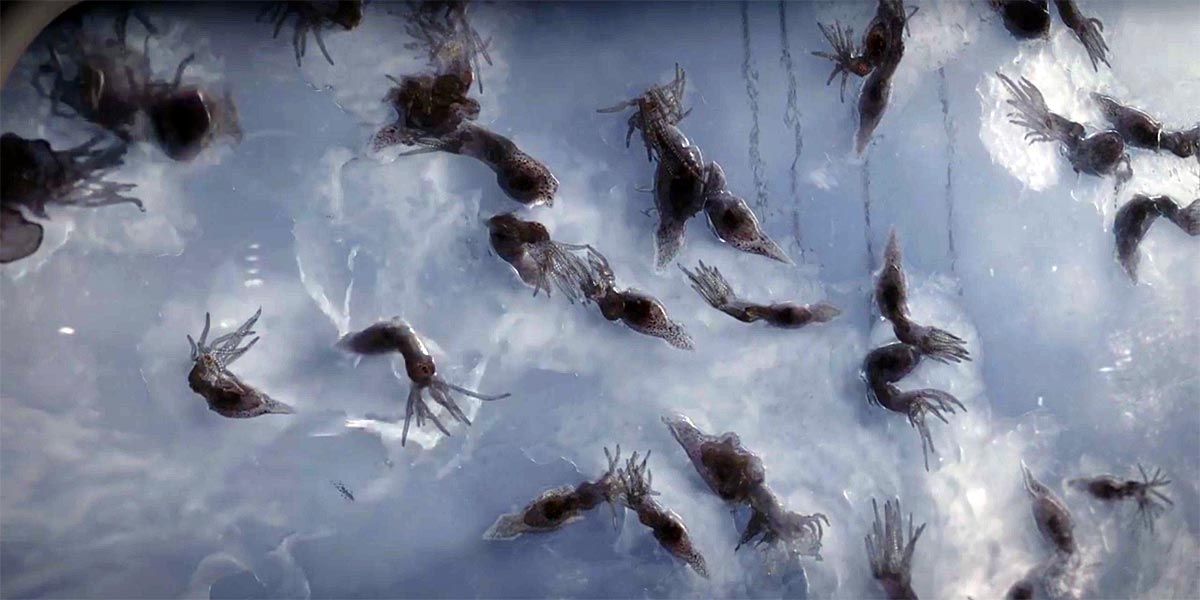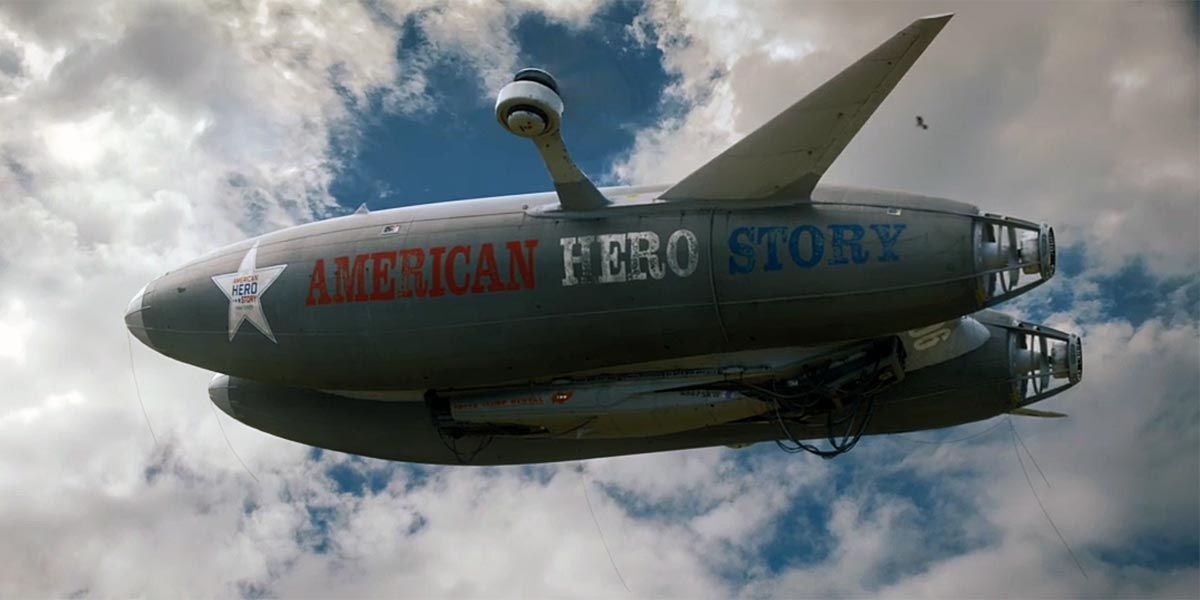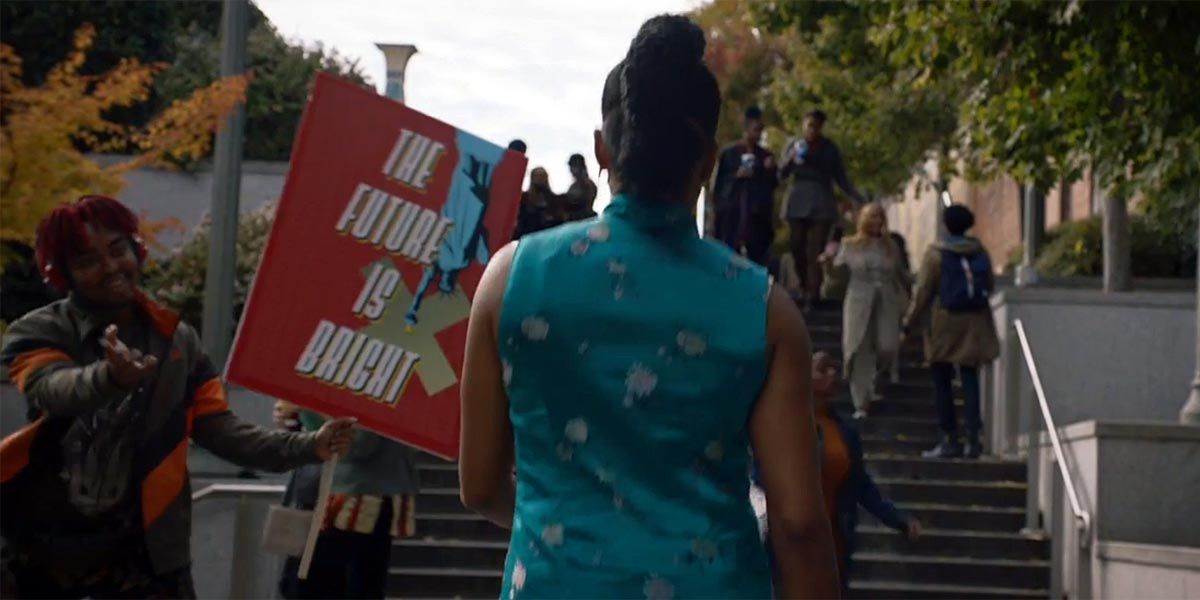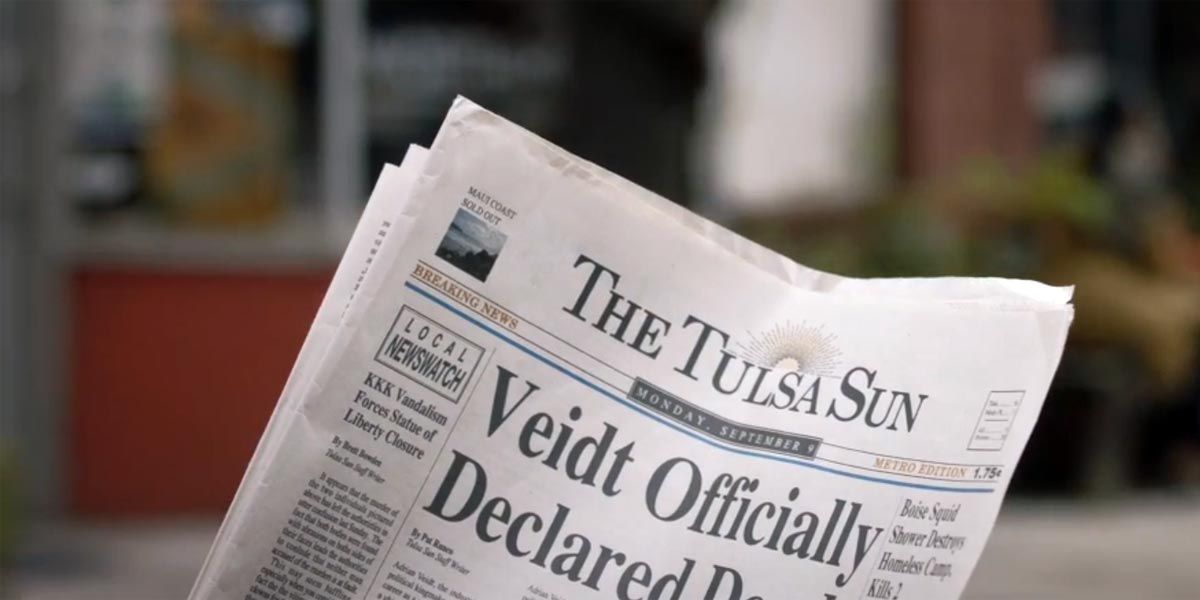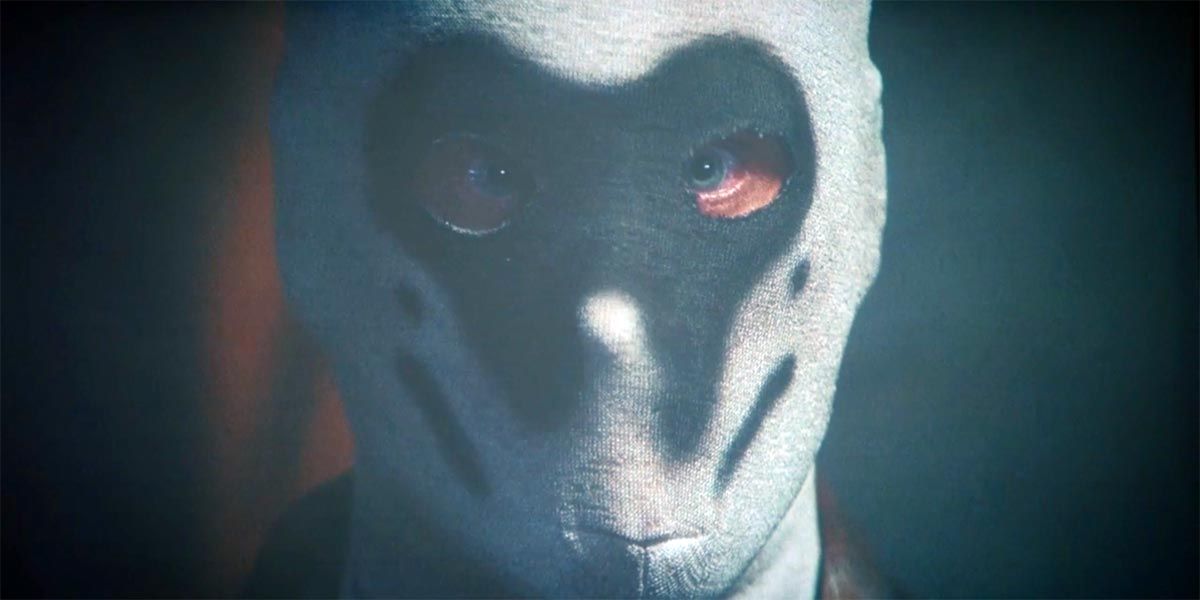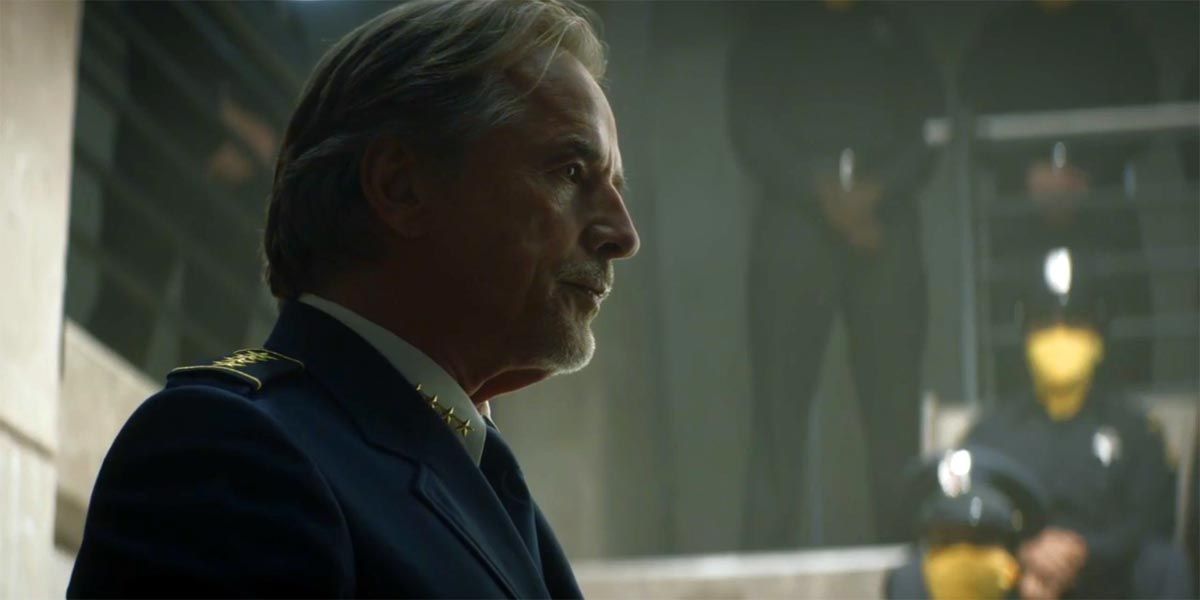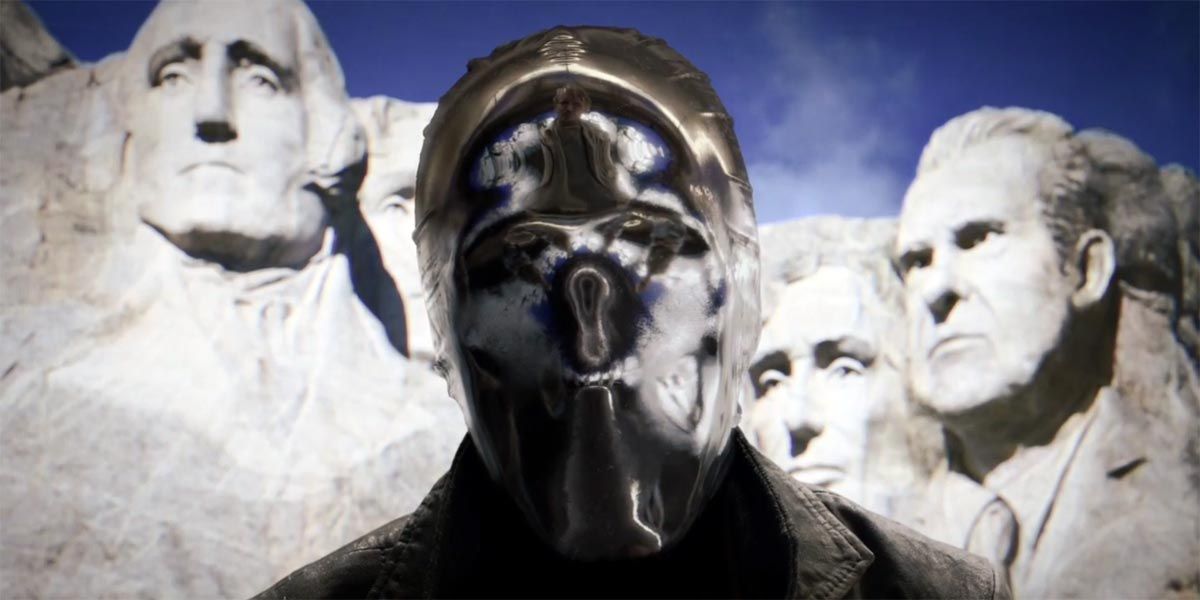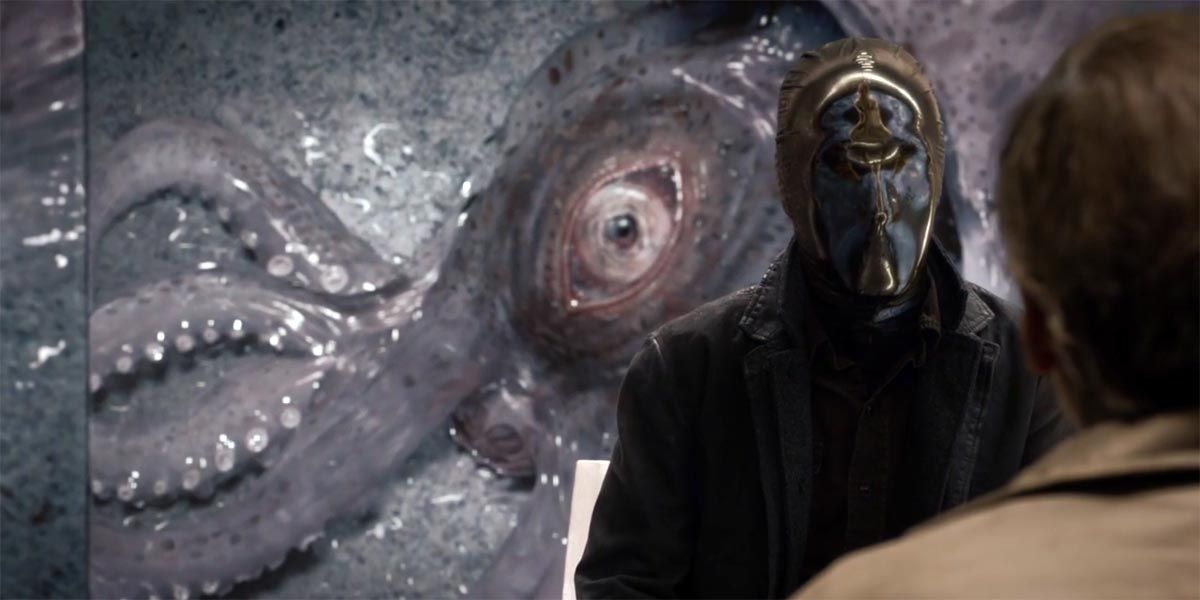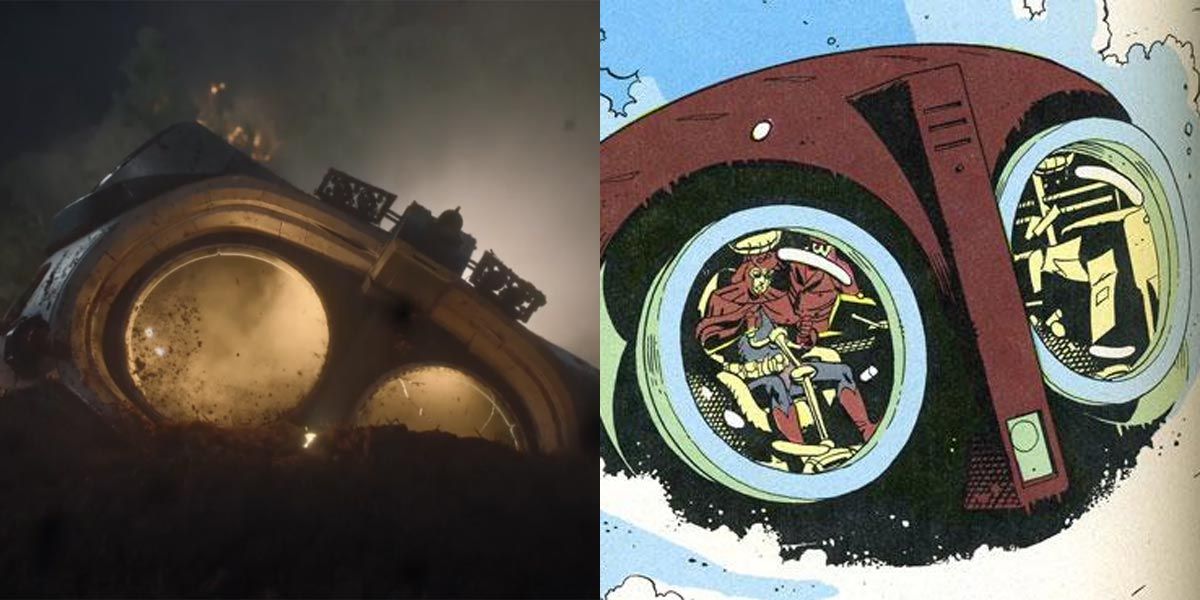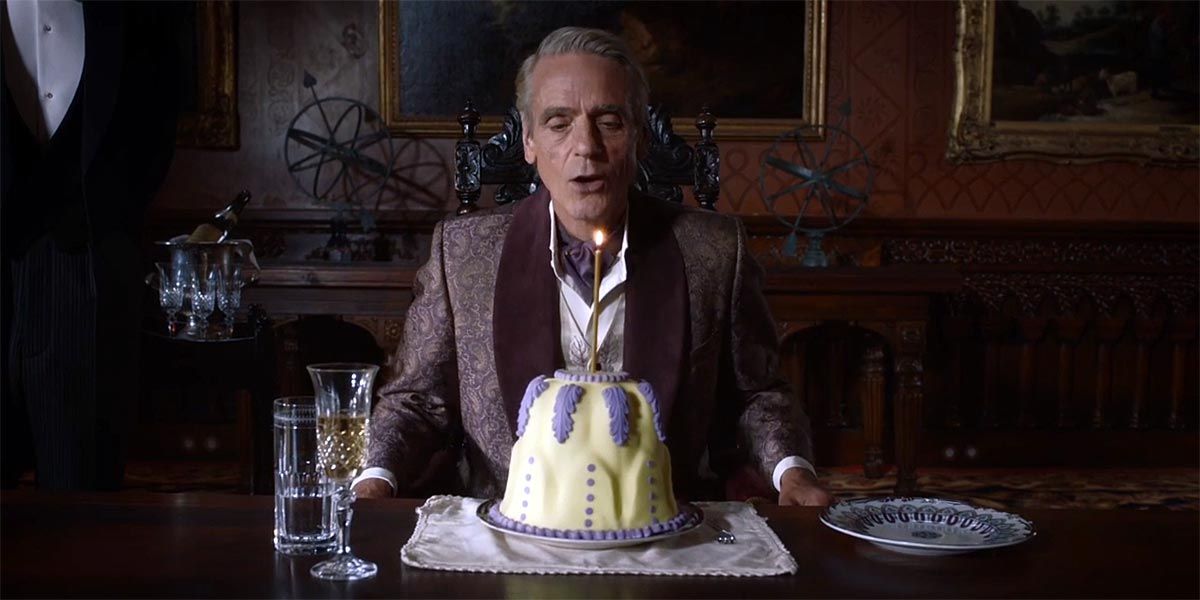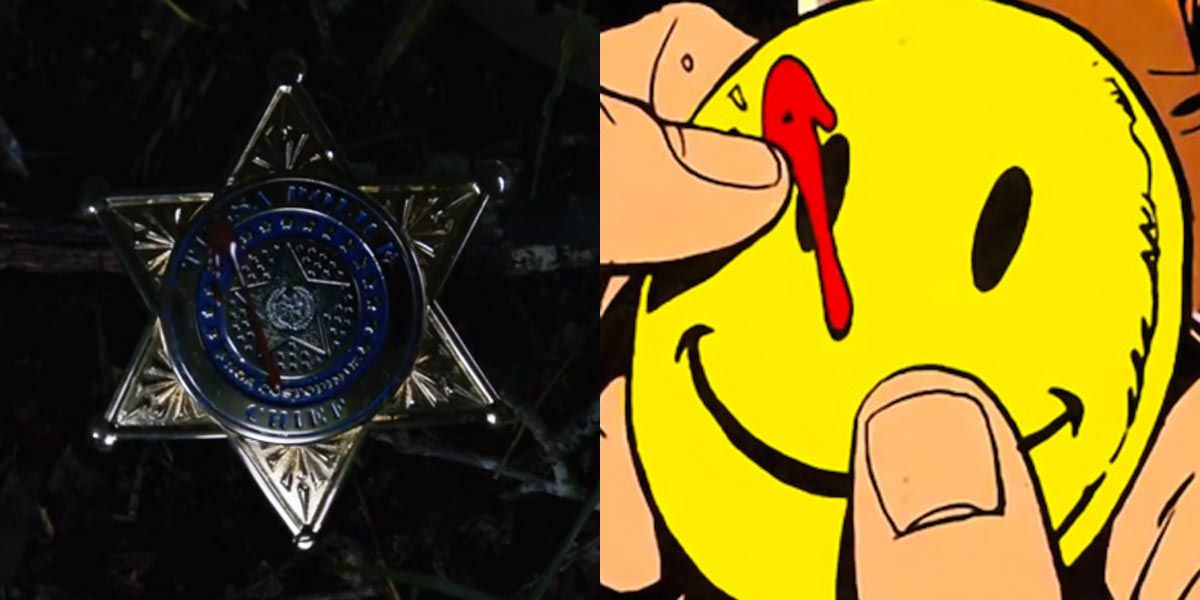WARNING: The following contains spoilers for the series premiere of Watchmen, "It's Summer and We're Running Out of Ice," which debuted Sunday on HBO.
Set 34 years after the events of the seminal comic by Alan Moore and Dave Gibbons, HBO's Watchmen treats the source material as gospel. The series unfolds in an alternate United States shaped decades earlier by the actions of figures like Doctor Manhattan and Ozymandias. It's a world in which Richard Nixon was president through the 1980s, a giant squid-like creature materialized in New York City, and the secret lives of the Minutemen still serve as fodder for trashy television.
Unfolding far from New York, in Tulsa, Oklahoma, the series centers on police detective Angela Abar (Regina King), one of the few survivors of targeted attacks on police three years earlier by members of the Seventh Kavalry, a white supremacist group that adopts the mask and ideology of Rorschach, the comic's protagonist. In the aftermath of the massacre, known as the White Night, the Tulsa police begin wearing masks to hide their identities and protect their families.
Ingrained in the alternate world introduced by the comic, HBO's Watchmen includes not only some familiar characters (for example, Jeremy Irons as Adrian Veidt), but multiple references, not only to the costumed vigilantes, but to motifs and developments. Some are obvious, but others are a perhaps a little more obscure. We break down all of the nods to the source material in the series premiere.
Rorschach's Influence On the Seventh Kavalry
From its opening moments, depicting the historical events of the 1921 race massacre in Tulsa, Oklahoma, Watchmen makes racism a recurring theme. In the second scene, a black Tulsa police officer is murdered by a member of the Seventh Kavalry, a white supremacist group that embraces not only the mask of Rorschach, but also, apparently, his moral absolutism.
Squidfall!
The people of this alternate America must endure periodic meteorological, or extradimensional, events referred to as squid showers or squidfalls. In the premiere episode, a warning siren sounds, and cars pull to the side of the street, just before small squids rain down, leaving a slimy, smelly mess. We glimpse a newspaper headline that indicates a shower in Boise, Idaho, resulted in two deaths at a homeless camp. However, mostly they seem to be little more than a minor nuisance.
The phenomenon is, of course, a nod to the comic's climax, in which Adrian Veidt (aka Ozymandias) enacts his master plan to pull the world back from the brink of a nuclear holocaust: a fake alien invasion of New York City. A giant, squid-like creature, secretly created in a lab by Veidt, is unleashed on Manhattan, resulting in 3 million deaths.
Airships
Airships hover above New York City's skyscrapers in the original comic, but on the HBO series there's one in Tulsa, advertising the sensationalist television series, American Hero Story: Minutemen, which purports to chronicle the history of that world's premier group of heroes from the 1940s.
Hooded Justice
There's a television commercial for American Hero Story later in the premiere episode, but this bus wrap gives us the first look at a classic hero from the world of Watchmen: Hooded Justice. A mysterious masked adventurer from the late 1930s through much of the '40s, Hooded Justice was a member of the Minutemen, alongside Captain Metropolis, Silk Spectre, Hooded Justice, Nite Owl, Silhouette, Dollar Bill, Mothman and The Comedian.
Neither the true identity, nor the ultimate fate, of Hooded Justice was revealed in the comic.
The End May Not Be Nigh After All
As Angela Abar heads to her bakery to change into her Sister Night identity, she passes a young man holding a sign that reads, "The Future Is Bright." It's unclear what he's promoting, but the sign is a wink to the one seen throughout the early chapters of the comic that reads, "The End Is Nigh." There, however, it's carried by Rorschach in his civilian identity, Walter Joseph Kovacs.
Wait, Veidt Is Dead?
Just as in the original comic, the Watchmen television series conveys tidbits of information through newspaper headlines (soon after, we learn from another newspaper that President Robert Redford won't seek another term). Beyond a repetition of the motif, this headline marks the first reference to Adrian Veidt, better known as Ozymandias, the costumed vigilante, and anti-villain, of the source material.
But while Veidt is officially declared dead, we know he's still alive, as he appears later in this episode, played by Jeremy Irons, living on a country estate ... somewhere.
"And we will whisper, 'No'"
Not content with merely stealing Rorschach's look, the Seventh Kavalry also swipes his most famous line, and alters it to suit their purpose: In a video released to announce the group's return, a spokesman warns, "Soon all the whores and race-traitors will shout 'Save us!,' and we will whisper 'No.'"
The video closes with the masked white supremacists chanting, "Tick-tock! "Tick-Tock!," counting down to a promised retribution. That begins the series' embrace of the clock motif from the comic, which there alluded to the Doomsday Clock inching closer to nuclear war. In the premiere episode, the Seventh Kavalry's chant is followed by Veidt being presented with a pocket watch as a gift, 7K members amassing watch batteries for an unknown purpose, a dining room table filmed to evoke a clock and, finally, ticking.
Who Watches the Watchmen?
Don Johnson's Chief Judd Crawford plays the video to the assembled police officers, and gives them their marching orders, before reciting what we can presume is the department's motto: "Quis Custodiet Ipsos Custodes." Roughly translated, that's, "Who watches the watchmen?" (The officers respond, "Facimus," or, "We do.")
"Who Watches the Watchmen?" was used in DC's marketing for the 1986-1987 comic series, and the slogan appears as graffiti throughout the story, although we never the complete phrase; it's always partly obscured.
One of Our Greatest Presidents?
In the alternate history of the comic and, now, the HBO series, President Richard M. Nixon asks the powerful Doctor Manhattan to intervene in the Vietnam War, ensuring U.S. victory. By 1985, when the main events of the comic take place, Vietnam had entered the union as the 51st state, which is reflected in the premiere. It's implied The Comedian took extreme action to cover up the Watergate scandal, which means Nixon didn't leave office disgraced. With the repeal of the 22nd Amendment, he was free to continue as president for at least five terms.
When Looking Glass (Tim Blake Nelson) interrogates a suspected Seventh Kavalry member in "The Pod," they're surrounded by flashing images intended to provoke a response: Among them is Mount Rushmore, which we see in Watchmen's world has been given a makeover, with Nixon's face added to the massive sculpture. A large figure of Nixon is also seen marking the entrance of "Nixonville," a collection of mobile homes where it's suggested unsavory people live.
Doubling Down On the Squid
In case we missed the link between the "squid shower" and the "alien" creature from the comic, this episode makes a less-subtle reference as Looking Glass continues his interrogation. It's perhaps no coincidence this image flashes on the walls as he asks, "Do you believe that transdimensional attacks are hoaxes, staged by the U.S. government?"
It's Not the Owlship, But It's Close
When Angela and other police officers mount a raid of a Seventh Kavalry compound, they're provided surveillance support by Chief Crawford and Pirate Jenny (Jessica Camacho) in what's revealed to be an airship that bears a striking resemblance to Nite Owl's Owlship.
They're virtually identical in shape, and both possess the enormous eye-like windows at the cockpit. Like the Owlship, the police vehicle also has a flamethrower, which it uses to bring down the small airplane in which some of the Seventh Kavalry members attempt to escape.
"The Watchmaker's Son"
HBO gave up trying to pretend Jeremy Irons might be playing someone other than Adrian Veidt some time ago. Isolated from the main action, we might presume he's sidelined. However, that's hardly in keeping with his character. He announces to his butler and maid that he's writing a play called "The Watchmaker's Son." That's a reference to Jon Osterman, aka Doctor Manhattan, who was indeed the son of a watchmaker, but was pushed by his father to pursue nuclear physics.
The Comedian's Badge
In the final scene, Johnson's Chief Crawford is shown hanging, dead, from a tree, and a drop of blood drops to spatter across his police badge on the ground below. It's, of course, intended to evoke The Comedian's badge, or button, from the comic, which has become iconic.
The Comedian wore the smiley face as part of his costume, an incongruous symbol, considering his brutal tactics. It's his blood, from the night in 1985 when he was attacked, that adorns the badge. After The Comedian was thrown out his window, the button fell free of his robe and washed into the gutter, to be found by Rorschach.
Developed by Damon Lindelof, HBO's Watchmen stars Jeremy Irons, Regina King, Don Johnson, Tim Blake Nelson, Louis Gossett Jr., Yahya Abdul-Mateen II, Tom Mison, James Wolk, Adelaide Clemens, Andrew Howard, Frances Fisher, Jacob Ming-Trent, Sara Vickers, Dylan Schombing, Lily Rose Smith and Adelynn Spoon. The series airs Sundays at 9 p.m. ET/PT.

